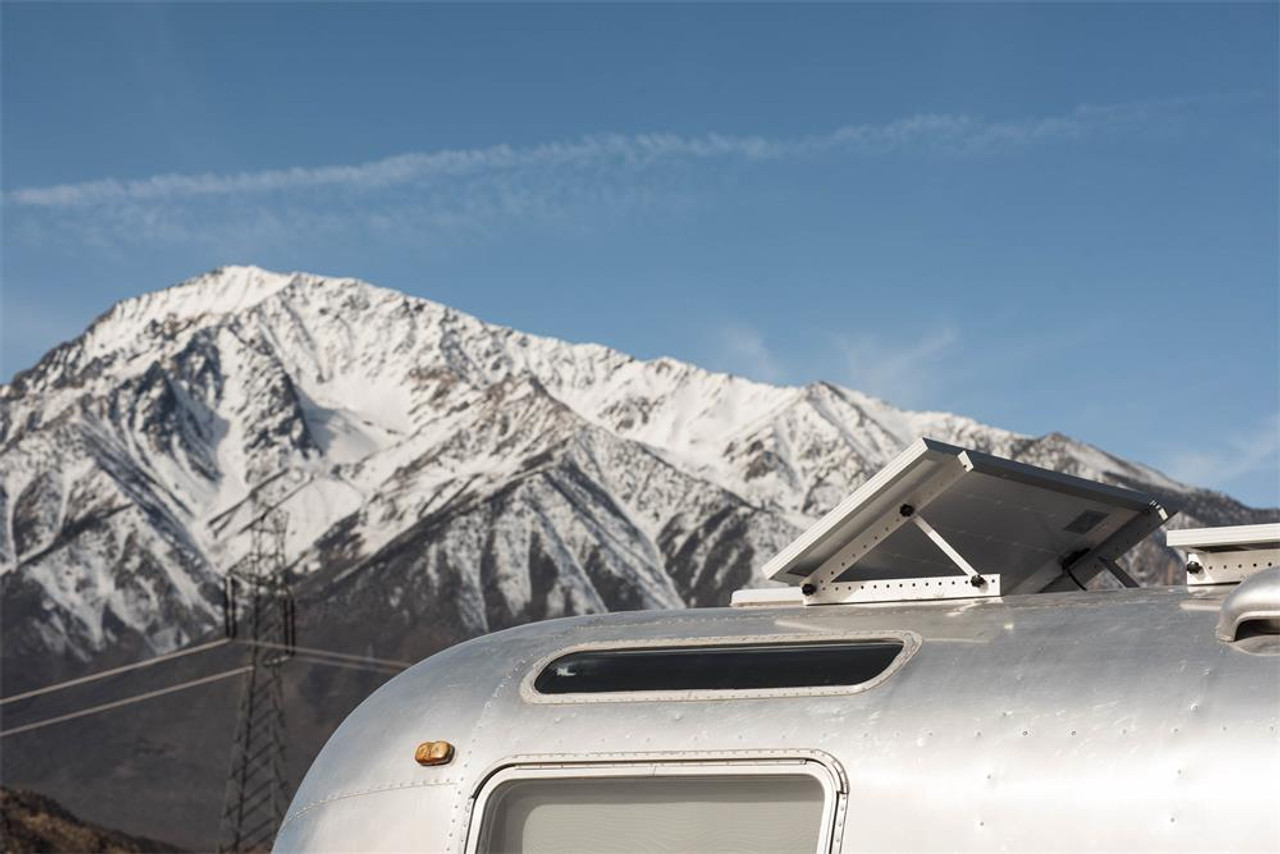Everything You Need to Know About Solar Energy & Solar Batteries
What to consider when selecting a solar storage solution?
Adding battery storage is a great way to take your solar installation to the next level. There are a variety of deep cycle batteries available on the market today that will make a powerful, efficient, and safe addition to your system by ensuring reliable access to energy when you need it most. How do you decide on the best solar battery for your system? What should I know about charging and maintaining my system? Let’s break it down for you.
Which batteries are best for solar?
Deep cycle batteries are the go-to battery for solar battery banks. They look similar to car batteries, but they are designed to provide a sustained period over a longer period of time. An important rule of thumb to keep in mind is not to discharge your batteries below 45%. Regularly going beyond that point will shorten the life of the battery.
Is battery storage worth it for me?
Battery storage is a beneficial component for many individuals.
I live in a home with access to the electrical grid: Battery storage is useful in case of outages.

Battery storage can be beneficial for homeowners, but it is not a requirement. You can always just rely on energy from the grid. However, if you’d like to go off-grid or be able to run your solar panels in the case of grid outages, battery storage is a great way to ensure continued energy access.
I live in a caravan or motorhome: Yes!
Battery storage is crucial to completely any off-grid solar system. We highly recommend battery storage for your caravan. Installing solar panels and batteries can take the place of a gas-powered generator. You’ll also be able to use energy at night or when your panels aren’t generating power by tapping into your battery bank.
What are the different types of batteries?
There’s a range of deep cycle battery options.The most common ones used for solar installations are flooded lead acid, sealed lead acid, and lithium iron batteries. Flooded lead acid batteries are the most inexpensive option and are available at most big-box and auto stores. Sealed lead acid batteries store 10 to 15 percent more energy than lead acid batteries and charge up to four times faster. Lithium iron batteries are the most expensive option. However, they also last four times longer than lead-acid batteries, are highly efficient, and weigh much less.
Which deep cycle battery is best for me?
Flooded Lead Acid: Cheapest option, but high maintenance
Flooded lead acid batteries are the cheapest, but also require the most maintenance. You have to check water levels with a hydrometer and add water to keep them topped off each month. Lead batteries must be housed in a ventilated room since they emit gases. This is not necessary with lithium-ion batteries.
Sealed Lead Acid (Absorbed Glass Matt and Gel): Little maintenance, lower charge rates
Contrary to flooded lead acid batteries, sealed lead acid batteries require little to no maintenance and are spill-proof. They are more expensive than flooded lead acid batteries, but also have a much longer cycle life. Within the family of sealed lead acid batteries are two types: absorbent glass matt (AGM) and gel batteries.
Gel batteries, which use silica to stiffen the electrolyte solution in the battery, tend to have lower charger rates and output than absorbed glass matt batteries. They also can’t handle as much current, meaning they take longer to recharge. However, gel batteries have a greater lifespan than AGM batteries and can be mounted in any orientation. Absorbed glass matt batteries offer a better temperature range and are a bit cheaper than gel batteries.
Lithium Iron Phosphate: Expensive, but no maintenance
Lithium iron phosphate batteries are the most expensive battery option, but they have an extremely long cycle life, high discharge and recharge rates, and are incredibly compact and lightweight. They also require little to no maintenance.
Lithium batteries typically have a lifespan of at least 10 years. Lithium iron phosphate batteries also lose less capacity when idle. This is especially useful in cases where solar energy is only used occasionally. They also have the best cycle life of deep cycle batteries, offering approximately 2000 cycles at 100% DoD (depth of discharge.)
For more information about lithium iron batteries, refer to our blog post.
Which batteries have the longest lifespan?
Typically lithium iron phosphate batteries have the longest lifespans. Gel batteries typically last 1,100 cycles, absorbed glass batteries 600 cycles, and lithium iron phosphate batteries last 7,000 cycles. It’s fair to assume the general range for a solar battery’s lifespan is between 5 and 15 years.
Do lithium batteries charge faster than flooded lead acid batteries?
Yes! Lithium iron phosphate batteries are more efficient and have a faster rate of charge. This is because they can typically handle a higher amperage, which means they can be recharged much faster than sealed and flooded lead acid batteries.
How many deep cycle batteries will I need?
The amount of battery storage you need is based on your energy usage. Energy usage is measured in kilowatt hours. For example, if you need 1,000 watts for 8 hours per day, then your energy usage is 8kWh per day. To size a system that will best fit your needs, we recommend making a list of all the devices you plan on running. The Renogy solar panel calculator is a great tool that makes it a quick and easy process to help determine your specific needs.
Can I wire different deep cycle battery types and sizes together?We recommend wiring batteries of the same type and amp hour rating, i.e. if you go with absorbed glass matt batteries, all the batteries in your battery bank should be AGM batteries. This will limit any efficiency loss due to having different batteries.
Conclusion
Installing a deep cycle battery bank can be a great fit for many individuals, from homeowners to travelers. From being able to access energy during a blackout to keeping your lights on while camping and travelling on the wide open road, there are many advantages to adding batteries to your solar installation.






